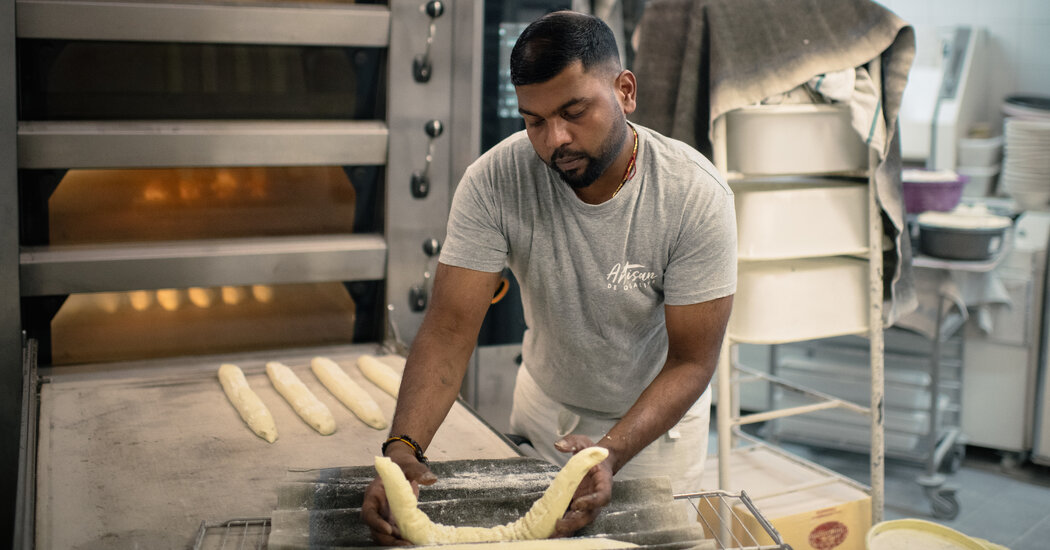Most mornings, around 6:30, Tharshan Selvarajah arrives at the Élysée Palace, seat of the French presidency, and unloads around 30 baguettes into the security scanner.
The bread that is synonymous with France is sacred, but not to the point that it can pass unverified into President Emmanuel Macron’s mouth.
Nor is the baguette, in its highest expression, the exclusive domain of French bakers. Mr. Selvarajah is a Sri Lankan immigrant who has lived in France for 17 years but not yet applied for French citizenship, even as his bread has reached the summit of Gallic gustatory acclaim.
This year France marked the 30th anniversary of the “Grand Prize of the Traditional French Baguette,” organized by the Paris City Hall. Mr. Selvarajah, 37, an intense bearded man with a fierce work ethic, won, with his creation edging out 126 other baguettes.
His prize? The honor, for the next year, of delivering those baguettes to Mr. Macron and his staff. He also received some $4,250. The baker’s notoriety is now such that long lines form outside his boulangerie, Au Levain des Pyrénées, on the fringes of eastern Paris.
One Saturday morning, Mr. Selvarajah explained what made his bread special. Seated in a nearby cafe, he held up his hands.
“God gave us all different hands,” he said.
A smile broke across his face. “My mother’s chicken curry and my wife’s chicken curry may use the same chicken but they do not taste the same,” he said. “God gave me the hands to make the best baguette in France! I am never angry with the flour as I knead the dough.”
A “baguette de tradition,” or traditional baguette, is made from flour, water, salt and yeast. Period. Sounds simple, and on one level it is. Yet so much depends on the perfect baguette and the perfect baguette is elusive.
A crunchy deep golden crust must encase a fluffy, slightly salty interior, punctuated with the small air sacs, known as alveoli, that produce a mildly chewy consistency. Appearance, taste, texture and smell must find a delicate harmony.
This requires hard work. Mr. Selvarajah was a little irritated because his store assistants had not appeared. Always, he said, there’s some excuse. He works six days a week, up to 10 hours a day, and thinks such industry — typical of immigrants trying to get a toehold in a new land — may explain why several winners of the baguette prize over the past decade have been of Tunisian or Senegalese descent.
The competition itself is anonymous. “Baguettes are…
Click Here to Read the Full Original Article at NYT > Travel…
